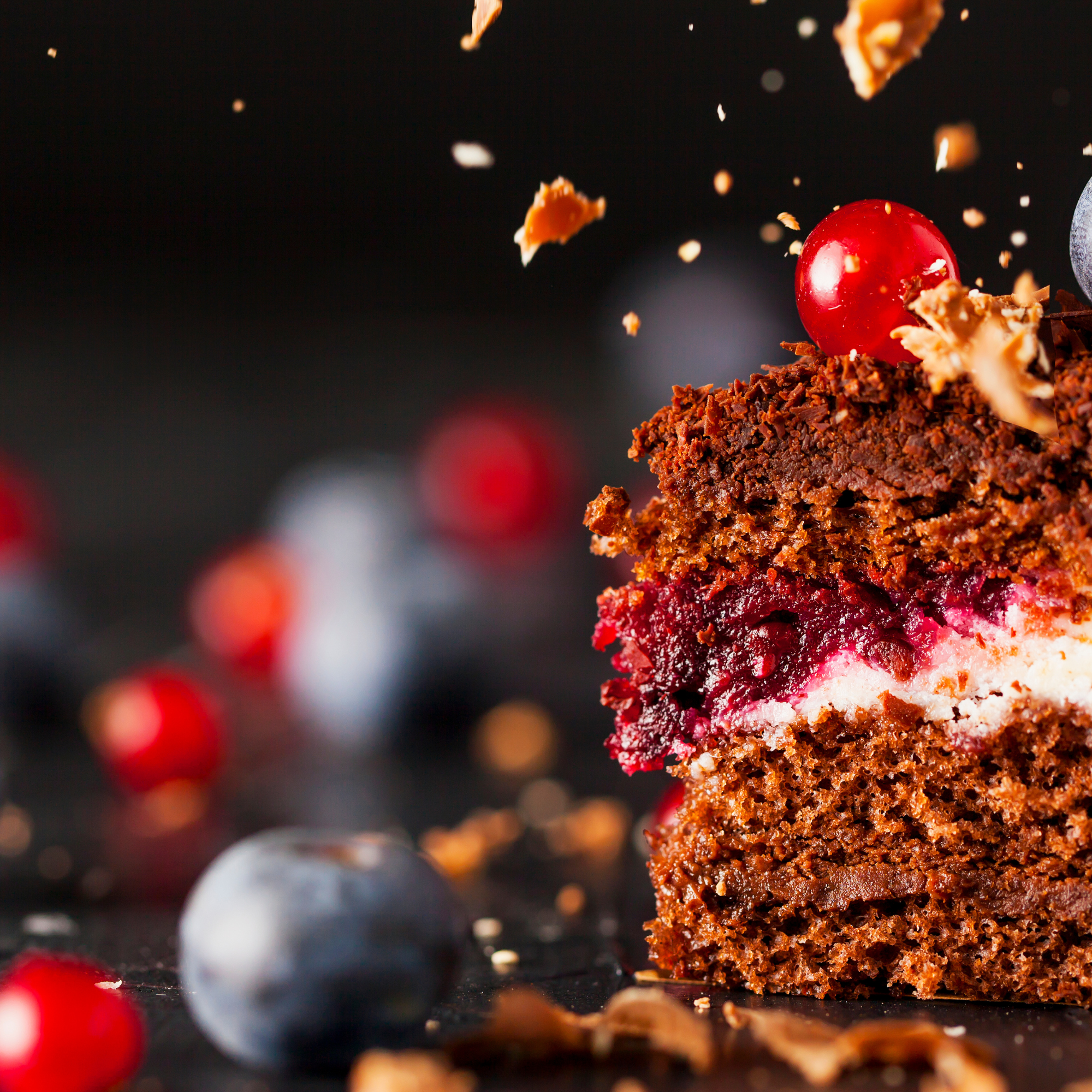
Does Monk Fruit Taste Like Stevia?
Monk fruit and stevia are two popular natural sweeteners known for their intense sweetness and potential health benefits. However, many people wonder if monk fruit can replicate the taste of stevia or vice versa. In this blog, we will explore the unique characteristics of monk fruit and stevia, explaining how their flavors differ while providing a comparable sweetness to sugar.
Origins: Monk Fruit and Stevia Monk fruit, derived from the small fruit called luo han guo (Siraitia grosvenorii) native to Southeast Asia, and stevia, extracted from the leaves of the Stevia rebaudiana plant, both offer natural alternatives to sugar. Despite their different origins, they share the common goal of providing sweetness without the negative effects associated with sugar consumption.
Distinct Flavors: While both monk fruit and stevia are intensely sweet, they have distinct flavor profiles:
-
Monk Fruit: Monk fruit extract, primarily obtained from the fruit's natural compounds called mogrosides, delivers a unique sweetness. Monk fruit imparts a delicate and subtly fruity flavor, with hints of melon or citrus. This mild fruitiness contributes to the overall taste experience when using monk fruit as a sweetener.
-
Stevia: Stevia, on the other hand, is characterized by a distinct, slightly herbal or licorice-like taste. Some individuals may perceive a mild aftertaste when using stevia, particularly in higher concentrations or when paired with certain foods. However, when used appropriately, stevia does not leave behind an aftertaste.
For example: If you put a tiny bit of pure, unadulterated stevia extract on your lips, you'll be surprised at how sweet it is. MonkVee Pure Stevia is 300x sweeter than regular sugar. However, if used in proportion to the food your are sweetening, there's virtually no difference to sugar. It's important not to over-do the amount of pure stevia or pure monk fruit extracts. 1 Scoop (included) of MonkVee Pure Stevia is equivalent to 1 TBSP of sugar and 2 Scoops of MonkVee Pure Monk Fruit is equivalent to 1 TBSP of regular Sugar.
Here is a useful conversion chart: Note that this table applies only to MonkVee products as we have unique sweetness ratios.

Comparable Sweetness: While monk fruit and stevia have different flavor profiles, they offer a comparable level of sweetness. Both sweeteners are significantly sweeter than sugar, with stevia being 300x sweeter and monk fruit extract around 150x sweeter. This high sweetness potency allows for smaller quantities of sweeteners to be used to achieve the desired level of sweetness in recipes or beverages.
The Advantage of Monk Fruit and Stevia: Both monk fruit and stevia offer several advantages:
-
Zero Calories: Monk fruit and stevia are both calorie-free sweeteners, making them suitable options for individuals watching their caloric intake or aiming for weight management.
-
No Glycemic Impact: Both sweeteners have a negligible impact on blood sugar levels, making them suitable for people with diabetes or those following a low-glycemic or low-sugar diet.
-
Versatility: Monk fruit and stevia can be used in a variety of culinary applications, including baking, cooking, and beverages. They can replace sugar in recipes on a one-to-one basis, allowing for seamless integration into your favorite dishes.
While monk fruit and stevia have distinct flavor profiles, they both provide a comparable sweetness to sugar. Monk fruit offers a delicate fruity flavor, while stevia has a slightly herbal or licorice-like taste. The choice between the two depends on personal preference and the desired flavor profile in your culinary creations.
Embrace the sweet potential of monk fruit and stevia and enjoy the delightful taste they bring to your favorite recipes and beverages. Whether you are looking to reduce your sugar intake, manage blood sugar levels, or simply explore new flavor options, monk fruit and stevia offer natural and healthier alternatives. Experiment with these sweeteners to find the perfect fit for your taste preferences and enjoy sweetness without the negative effects of sugar.
Calorie Calculator

Build Your MonkVee® Box
Ditch the sugar & lab made sweeteners for good!
Glycemic Index Calculator
Click product for details and to upgrade to Subscribe & Save
Try MonkVee®
Mac: Command + F to find your question
Commonly Asked Questions
Why use Monk Fruit Sweetener?
MonkVee® Monk Fruit Sweeteners are 100% natural and zero calories. Unlike sugar which is known to be the leading cause of dozens of awful chronic illnesses such as certain cancers, diabetes, and other killers. MonkVee® Monk Fruit (and Stevia extract) are the healthiest known sweeteners available on the market today. Unlike lab-made artificial sweeteners, MonkVee® is your #1 choice for pure, natural, delicious sweetness. No More sugar spikes and sugar crashes, jitters, diseases, tooth decay and cavities... The list goes on. Try MonkVee® and enter the sweet life!
Will monk fruit sweetener activate yeast
Monk fruit doesn't activate yeast like sugar does, however, by using MonkVee® Monk Fruit, you can reduce the sugar in your recipe overall and have a much healthier outcome! And it will taste just as good! See our full article about baking with monk fruit here.
What is monk fruit?
Monk fruit, also known as luo han guo, is a small green melon native to Southeast Asia. It's valued for its sweetness and health benefits.
How is monk fruit sweetener made?
Monk fruit sweetener is made by extracting the natural sugars from the monk fruit, resulting in a concentrated sweetener that is much sweeter than sugar.
Is monk fruit sweetener a good sugar alternative for baking?
Yes, monk fruit sweetener can be used as a sugar alternative in baking. It provides sweetness without the calories or blood sugar spikes associated with regular sugar.
Does monk fruit sweetener have any calories?
Monk fruit sweetener is calorie-free, making it an excellent option for those watching their calorie intake.
Can monk fruit sweetener be used by people with diabetes?
Yes, monk fruit sweetener is a suitable option for people with diabetes because it does not affect blood sugar levels.
Is monk fruit sweetener safe for weight loss diets?
Monk fruit sweetener can be a helpful tool for those on weight loss diets as it provides sweetness without the calories of sugar.
Does monk fruit sweetener have an aftertaste?
Monk fruit sweetener typically does not have an aftertaste, especially when compared to other artificial sweeteners.
Can monk fruit sweetener help with acne?
While there's no direct evidence linking monk fruit sweetener to acne, reducing sugar intake, including monk fruit sweetener, may contribute to clearer skin for some individuals.
Does monk fruit sweetener affect sleep quality?
Monk fruit sweetener does not directly affect sleep quality. However, consuming it in excess before bedtime may lead to digestive discomfort, which could impact sleep.
Are there any known side effects of consuming monk fruit sweetener?
Monk fruit sweetener is generally recognized as safe (GRAS) according to the FDA.
Can monk fruit sweetener be used in hot beverages like coffee or tea?
Yes, monk fruit sweetener can be added to hot beverages like coffee or tea to sweeten them without adding calories.
Is monk fruit sweetener suitable for vegan diets?
Yes, monk fruit sweetener is vegan-friendly as it is derived from the fruit and does not contain any animal products.
How does monk fruit sweetener compare to other natural sweeteners like stevia?
Monk fruit sweetener and stevia are both natural sweeteners with zero calories, but monk fruit is often considered to have a cleaner, more sugar-like taste.
Can monk fruit sweetener be used in cold beverages?
Yes, monk fruit sweetener can be used to sweeten cold beverages like iced tea or lemonade without any issues.
Does monk fruit sweetener contain any artificial ingredients?
No, monk fruit sweetener is made from the natural sugars found in the monk fruit and does not contain any artificial ingredients.
Can monk fruit sweetener be used in recipes that require caramelization?
Monk fruit sweetener can be used in recipes that require caramelization, but it may not caramelize in the same way that sugar does.
Can monk fruit sweetener be used in homemade jams and preserves?
Yes, monk fruit sweetener can be used to sweeten homemade jams and preserves instead of sugar. It will provide sweetness without adding extra calories.
Does monk fruit sweetener have a glycemic index?
Monk fruit sweetener has a glycemic index of zero, meaning it does not raise blood sugar levels.
Can monk fruit sweetener be used in raw desserts?
Yes, monk fruit sweetener can be used in raw desserts to add sweetness without the need for cooking or baking.
Is monk fruit sweetener suitable for people with gluten intolerance?
Yes, monk fruit sweetener is gluten-free and can be safely consumed by people with gluten intolerance or celiac disease.
Can monk fruit sweetener be used in homemade salad dressings?
Yes, monk fruit sweetener can be used to sweeten homemade salad
Is monk fruit sweetener suitable for people following a ketogenic diet?
Yes, monk fruit sweetener is suitable for those on a ketogenic diet as it does not contain any carbohydrates or sugars that could affect ketosis.
Can monk fruit sweetener be used in beverages other than tea and coffee?
Absolutely! Monk fruit sweetener can be used in various beverages like smoothies, cocktails, and flavored water to add sweetness without the extra calories.
Does monk fruit sweetener affect blood sugar levels?
No, monk fruit sweetener does not affect blood sugar levels as it has a glycemic index of zero. It's a suitable option for those monitoring their blood sugar.
Is monk fruit sweetener safe for pregnant women?
Monk fruit sweetener is generally considered safe for pregnant women, but it's always best to consult with a healthcare professional for personalized advice.
Can monk fruit sweetener be used in homemade granola bars?
Yes, monk fruit sweetener can be used in homemade granola bars to provide sweetness without the added sugar. It's a healthier option for snacks.






















